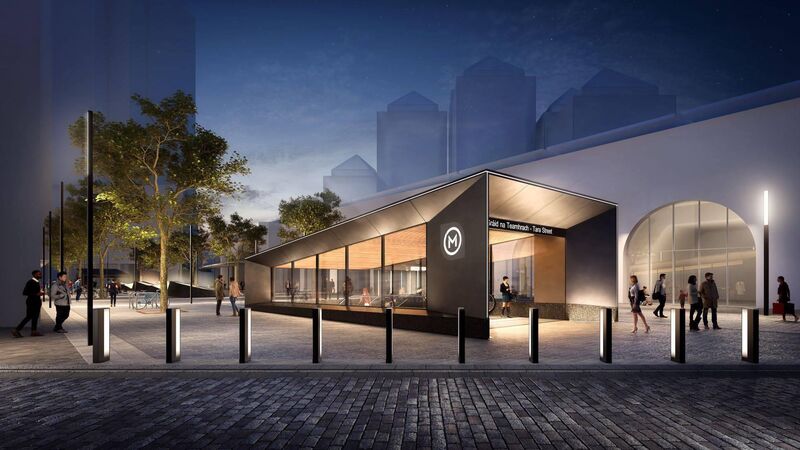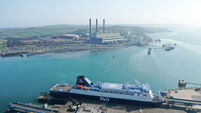MetroLink gets green light from An Coimisún Pleanála

An artist's impression of the Tara Street MetroLink entrance.
There was a major boost to Ireland’s long-awaited MetroLink service to link Dublin Airport and the city, as planning permission was granted by An Coimisún Pleanála for the multi-billion euro project on Thursday.
The MetroLink, hailed as “critically important” by ministers, has been given the green light just over three years after planning permission was first sought by Transport Infrastructure Ireland.













